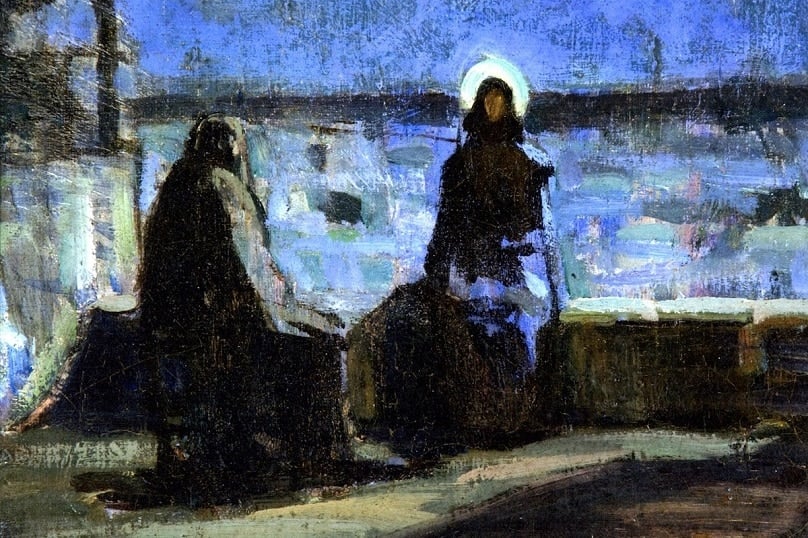
Before we enter into the origin of the word Easter we should remind ourselves that when we celebrate Easter, by whatever name we call it, we are celebrating the Resurrection of Christ and with it our Redemption. It is the most important feast day of the year for Christians and it is truly a happy day: “This is the day which the Lord has made, let us rejoice and be glad in it” (Ps 118:24). What really matters is not what we call it, or where the name comes from, but what we are celebrating.
Turning to the name for the feast, in most western languages and in some eastern ones the name is derived from the word for Passover, which we often render Pasch. We recall that at the time of the exodus from slavery in Egypt, the Israelites were told to slaughter a lamb and put some of the blood on the doorposts and the lintel of their house. That night the angel of death passed over the homes of the Israelites and killed the first-born males of the Egyptians. We use the word Pasch to refer to Christ, the true paschal lamb, by whose death and resurrection we are freed from slavery to sin, death and the devil. St Paul says this in his first letter to the Corinthians: “For Christ, our Paschal Lamb, has been sacrificed” (1 Cor 5:7).
So Easter is called Pasch in many languages. In French one wishes someone happy Easter with “Joyeuses Pâques”, in Spanish “Felices Pascuas”, in Italian “Buona Pasqua”, and even in Indonesian “Selamat Paskah”. The northern European languages also use that term so that in Dutch one says “Vroliik Pasen”, in Norwegian “God påske” and in Swedish “Glad Påsk”.
But in German and other languages derived from German, like English, we call it Easter. In German we wish someone “Frohe Ostern”, in Luxembourgish “Schéin Ouschteren”, in Swiss German “Schöni Oschtere” and in English “Happy Easter”. We are clearly the odd ones out!
So where does the name Easter come from? The English monk St Bede (672-735) wrote about the month of Eostre, corresponding to April, which he says was named after the goddess Eostre, because feasts were celebrated in her honour in that month (De temporum ratione, ch. 13). The Germans too, going back at least to around the year 800, called the month of April after their corresponding goddess Ostra.
The name Easter, Eostre or Ostra, is related to the word for east, or ost in German, since Ostra was the goddess of the dawn, of the rising sun and the new day. She was worshipped in the Spring, when the darkness of the long winter days gives way to increasing sunlight, bringing with it new life and growth. It is understandable that Christians would have associated the name with the feast of the Resurrection, when we celebrate the rising from the dead of Jesus Christ, the light of the world. Christ is often referred to as the Sun of Justice and he is associated with the east.
For example, Origen in the third century writes: “Atonement comes to you from the east. From the east comes the one whose name is Dayspring, he who is mediator between God and men. You are invited then to look always to the east: it is there that the sun of righteousness rises for you, it is there that the light is always being born for you… So that you may always enjoy the light of knowledge, keep always in the daylight of faith, hold fast always to the light of love and peace” (Homiliae in Leviticum 9, 5.10).
Also, in the ceremony of baptism in the early centuries the catechumens would first face west, the direction of darkness and Satan, to answer the questions we still use in the ceremony: “Do you reject Satan … and all his works? Then they would turn to the east, the direction of Christ, to answer the three questions of the profession of faith: “Do you believe in God the Father Almighty… in Jesus Christ… in the Holy Spirit?”
In the Easter Vigil ceremony we express this in the lighting of the Easter candle, Christ our light, who takes us from the darkness of sin into the light of God’s grace.
So while Eostre may have been a pagan goddess, the name Easter is rich in meaning for us. Let us not worry about the name but rather celebrate the joy of Christ’s resurrection.
